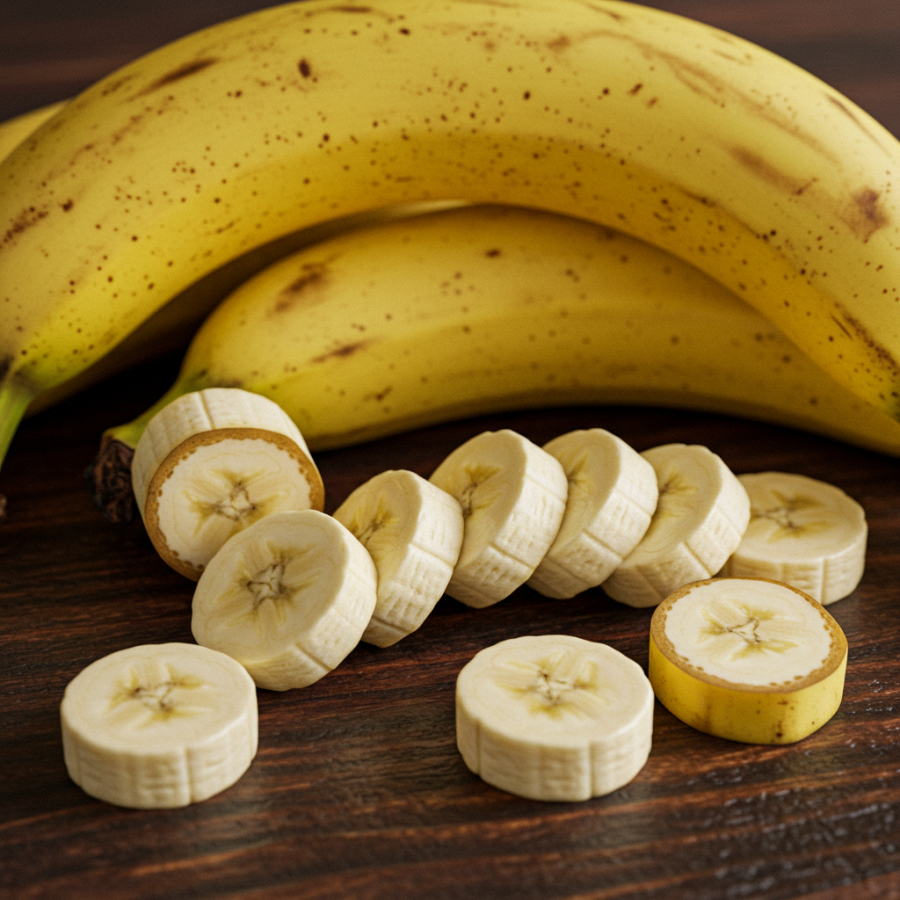Nutritional Value of Bananas
Bananas are an affordable fruit with an impressive nutritional profile. A medium-sized banana (approximately 118 grams) packs 105 calories, 27 grams of carbs, 3 grams of fiber, 0.3 grams of fat, 1 gram of protein, 22% of the daily value (DV) of vitamin B6, 17% DV of vitamin C, 8% DV of magnesium, 12% DV of potassium, and 16% DV of manganese.
Additionally, bananas are rich in plant compounds that offer health benefits such as reducing stress, fighting inflammation, and lowering the risk of chronic diseases.
Health Benefits of Bananas
– Weight Loss Support
Eating bananas daily helps boost fiber and protein intake, inducing a feeling of fullness, curbing cravings, and reducing calorie intake, all of which contribute to effective weight loss.
– Energy Booster
Bananas provide a quick energy boost by supplying easily digestible carbohydrates. They are also a good source of potassium, which helps prevent dehydration and maintains fluid balance in the body.
For those who are physically active and engage in regular exercise or sports, bananas are an excellent energy source, even outperforming some sports drinks.

Bananas: A Nutritious and Healthy Treat
– Skin Health
Bananas are rich in manganese, which plays a role in collagen production. This helps address skin issues such as wrinkles, dry skin, and acne.
– Heart Health
The high potassium content in bananas helps regulate blood pressure and supports cardiovascular health. Research suggests that consuming one banana per day can lower the risk of cardiovascular disease by 25%.
– Vision Support
Bananas are a good source of vitamin A, which is essential for protecting the eyes, maintaining normal vision, and enhancing night vision.
– Gut Health
Bananas are beneficial for digestive health. They contain resistant starch, which increases the production of short-chain fatty acids, crucial for a healthy gut.
Foods That Don’t Pair Well with Bananas
– Bananas and Dairy
According to Ayurvedic expert Dr. Surya Bhagwati, consuming bananas and dairy together can disrupt the body’s balance and interfere with gut bacteria, potentially leading to issues like coughing and congestion.
Research also indicates that this combination may aggravate respiratory disorders and, as per Ayurvedic principles, increase mucus production in the body.
Moreover, the amylase enzyme in bananas can break down proteins in milk, exacerbating digestive symptoms like bloating, diarrhea, and abdominal pain.

Bananas and Dairy: A Potential Digestive Dilemma
– Bananas and Citrus Fruits
Both bananas and citrus fruits like oranges and grapefruit have acidic or sub-acidic properties. Experts advise against consuming acidic and sub-acidic fruits together. Some studies suggest that eating bananas with highly acidic fruits can cause nausea and headaches.
– Bananas and Protein-Rich Foods
Bananas are high in purines and are easily digestible. In contrast, protein-rich foods like meat and eggs are slow to digest.
Combining bananas with these protein-rich foods may slow digestion and cause digestive discomfort. High-protein foods can lead to fermentation in the stomach, producing excess gas and resulting in gastrointestinal distress.
– Bananas and Fatty Foods
The fiber in bananas can slow down the digestion of fatty foods, leading to bloating, indigestion, nausea, or diarrhea.
Moreover, the fat content in greasy meals can prolong the time food stays in the stomach, providing more time for the fiber in bananas to ferment, potentially causing digestive issues.
How Many Calories Are in a Banana?
Are you a banana enthusiast? Curious about the nutritional value of this tropical fruit? Well, wonder no more! In this introductory paragraph, we will be delving into the world of bananas and uncovering the answer to the question of calorie content. Get ready to peel back the layers and discover the secrets within this humble fruit.



































